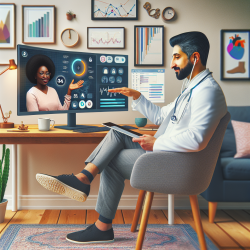Introduction
Music Performance Anxiety (MPA) is a prevalent issue among musicians, affecting their ability to perform optimally. Despite numerous interventions, the prevalence of MPA remains unchanged since the 1980s. This blog explores insights from the research article "It’s not a virus! Reconceptualizing and de-pathologizing music performance anxiety" by Herman and Clark, offering a new perspective on MPA that can improve intervention strategies and outcomes.
Reconceptualizing MPA
Traditionally, MPA has been viewed as a pathological condition requiring treatment to alleviate symptoms. However, this approach has not significantly reduced its prevalence. Herman and Clark suggest viewing MPA as a normal and adaptive response to the pressures of performance, rather than a disorder. This reconceptualization shifts the focus from symptom management to understanding MPA as a functional response to performance demands and stressors.
Implications for Practitioners
For practitioners, this new perspective offers several implications:
- Assessment and Intervention: Practitioners should consider MPA as part of a musician's adaptive response system. Interventions should focus on enhancing coping strategies and resilience rather than solely reducing anxiety symptoms.
- Educational Programs: Incorporating psychoeducation about the adaptive nature of MPA into music education can help students develop healthier relationships with anxiety and performance.
- Holistic Approach: Addressing the multifaceted nature of MPA requires a holistic approach that considers personality traits, environmental stressors, and individual coping mechanisms.
Encouraging Further Research
Herman and Clark's work highlights the need for further research into the adaptive aspects of MPA. Practitioners are encouraged to explore new intervention models that focus on acceptance and adaptive coping, rather than symptom elimination. By doing so, we can better support musicians in managing performance anxiety and achieving their full potential.
Conclusion
Reconceptualizing MPA as an adaptive response opens new avenues for effective interventions and educational practices. By shifting our perspective, we can better support musicians in navigating the challenges of performance anxiety. For a deeper understanding of this research, read the original paper: It’s not a virus! Reconceptualizing and de-pathologizing music performance anxiety.










